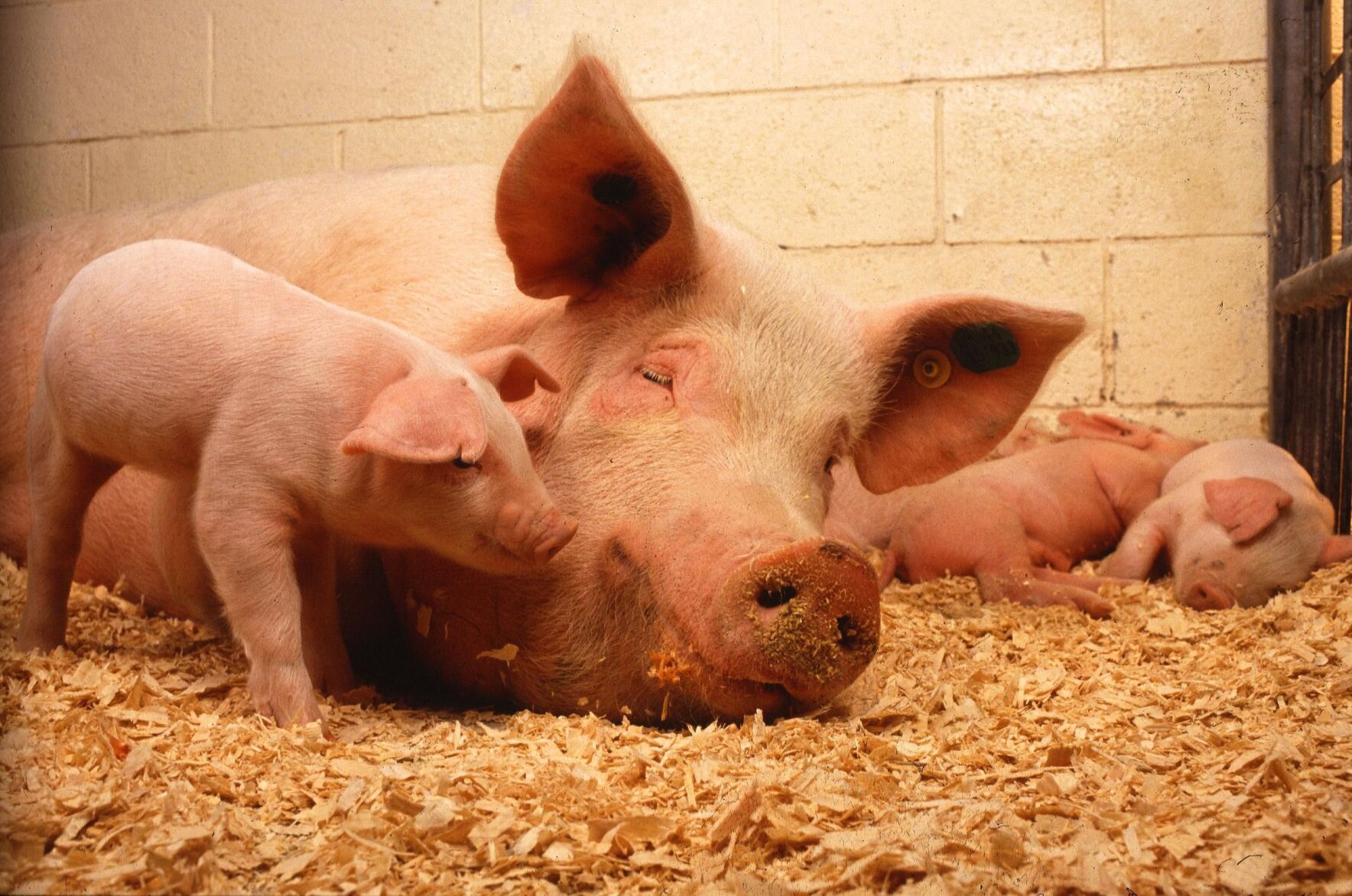In the first week of oral arguments in the most eagerly awaited case of the United States Supreme Court’s fall docket, National Pork Producers Council v. Ross, the NPPC said in a statement it was hopeful it would prevail.
“This is a historic day for American farmers. National Pork Producers Council and American Farm Bureau Federation presented oral arguments on NPPC v. Ross before the U.S. Supreme Court challenging the constitutionality of California Proposition 12. As we’ve contended since 2018, one state should not be able to regulate commerce in another state and set arbitrary standards that lack any scientific, technical, or agricultural basis. NPPC presented a strong case and is confident in its arguments presented to the Supreme Court justices. We appreciate the support of the Biden administration and look forward to the court’s decision.”
Cattlemen join in
The National Cattlemen’s Beef Association reaffirmed support for the NPPC, showing that other agricultural and livestock producers are concerned about the precedents that could be set by California’s Prop 12 if it prevails in court.
“While this case is not focused on cattle producers, the precedent set by the court will determine all producers’ ability to engage in interstate commerce,” said NCBA Vice President of Government Affairs Ethan Lane. “NCBA strongly supports economic freedom for all livestock producers to sell their high-quality protein from coast to coast and we join NPPC in urging the Supreme Court to reject unconstitutional mandates on agricultural production.”
The case began in 2018, when California voters passed Prop 12, the Farm Animal Confinement Initiative, with a supporting vote of 67.2%. The law imposed new requirements on pork producers—not just in California, but on all U.S. pork producers who wanted to sell in California. California itself has barely any pork production but consumes 13% of U.S. pork. Prop 12 forbids confining animals to prevent them from lying down, standing up, or turning around freely. Some producers in other states say it would cost millions to comply with those provisions.
Dormant commerce clause
Earlier this year, NCBA filed an amicus brief before the court arguing that California’s mandates on livestock production methods violated the dormant commerce clause of the Constitution. Opening the door to state-level mandates creates a patchwork of rules that unreasonably restricts cattle producers’ ability to conduct business across state lines, the NCBA argued.
For many pork producers, it’s a life-and-death case that could regulate how they manage their operations. According to one of the nation’s top constitutional scholars, it’s “one of the most consequential cases of the term, and I don’t just mean for the price of pork chops.”
So writes Michael McConnell of Stanford University, the Richard and Frances Mallery Professor and director of the Constitutional Law Center at Stanford Law School and a senior fellow at the Hoover Institution. From 2002 to 2009, McConnell served as a circuit judge on the United States Court of Appeals for the Tenth Circuit. His views on the case were shared in the respected legal blog, The Volokh Conspiracy, maintained by lawyer Eugene Volokh. McConnell helped write the amicus brief for the U.S. Chamber of Commerce.
Not all pork producers oppose Prop 12. ButcherBox, the subscription mail-order meat service which says it is the largest direct-to-consumer brand delivering “humanely raised meat and sustainably sourced seafood to more than 450,000 members across the United States,” filed a friend of the court brief in favor of Prop 12. ButcherBox says all its pork suppliers—including Niman Ranch’s network of 650 independent family hog farmers—already comply with Prop 12 requirements and have since 2015, before the law was passed
Niman Ranch, a pioneer in organic livestock raising, was founded in California in the 1970s. Since 2015, Niman Ranch’s parent corporation has been Perdue Farms Inc., which has positioned itself as an industry leader in sustainable agriculture and humane animal care. In its brief, ButcherBox argues “whether to meet Prop 12’s standards is a competitive decision.”
The NPPC says it’s fine if some producers want to comply—as long as their compliance is voluntary. “Producers should have the right to make those decisions themselves, on the farm,” said Terry Wolters, NPPC president and a pork producer himself. But he was unequivocal on the harms of the coercive aspects of Prop l2, saying it was “not good for my animals, not good for consumers and a threat to farming in America.”
According to McConnell, Prop 12’s threat to federalism—the Constitutional division of powers between the states and the federal government—is dire. “States cannot punish conduct in other states, and they cannot bar entry or importation of people or products based on conduct that occurred in other states, except when the product will have a material effect within the state.”
Ethical preferences
Regarding that last point, NPPC attorney Michael Formica said that in its initial filing documents, California declined to defend Prop 12 on the basis of food safety. That is significant, because it foregoes a claim that raising pigs not in compliance with Prop 12 makes the meat less safe. McConnell explains that according to the dormant commerce clause, “states cannot bar the movement of commerce across state lines except for the police power purposes of protecting their own residents’ health, welfare, and safety.” They cannot bar goods merely because their production does not meet the state’s ethical preferences, he adds.
McConnell paints a nightmare picture of U.S. culture wars being extended to interstate commerce of all sorts if Prop 12 is allowed to prevail. “Once California is green-lighted to use its monopsony power to pressure businesses all over the country to comply with Californian social preferences, there will be no end to it. Most obviously, California will prohibit imports from companies that do not comply with its version of ESG regulations. Next up will be companies that exceed California carbon emission targets. Why not also companies in states that ban abortions? … And it will not just be California. No doubt Texas will get into the act. Why not bar importation of products from companies with closed shops? Or companies that include abortions in their health-care packages? Or from states that bar Texas products on social grounds? This is precisely the sort of interstate economic warfare that the founders attempted to avoid by placing all power over imports across state lines in the national government.”
McConnell concludes, “If we want a change in nationwide rules for pork production, it is Congress’s job to make them. One state cannot be permitted to rule them all.”
David Murray can be reached at [email protected].

